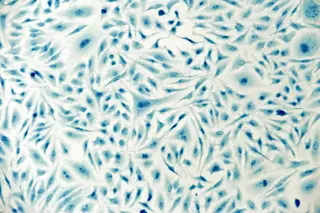From crucial vaccines to new insights about diseases, nearly all biomedical research starts with the study of human cell samples in a lab.
All of these samples are originally taken from human patients. But when they make their way to the lab, most of these samples — including the HeLa cell line, one of the world’s most prominent cell samples — are viewed independently from the person they were sampled from.
These samples don’t exist in a vacuum. Notably, the HeLa cell line was initially taken from Henrietta Lacks, a Black woman from Maryland who was being treated for cervical cancer at the Johns Hopkins Medical Center in 1951. Cell biologist George Otto Gey sampled Lacks’ cells without her consent long before the U.S. had implemented its current policy requiring patient permission to collect biological samples.
“We didn't think about [those cells as belonging to] Henrietta Lacks – HeLa was ...














